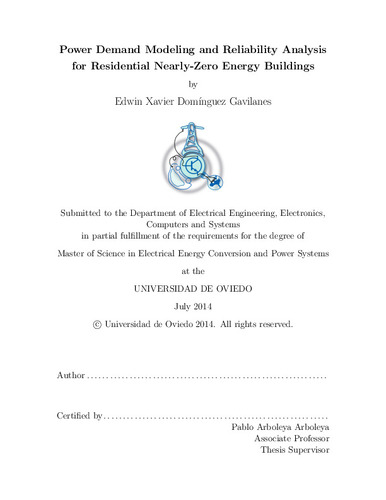Power Demand Modeling and Reliability Analysis for Residential Nearly-Zero Energy Buildings
Autor(es) y otros:
Director(es):
Palabra(s) clave:
Nearly-Zero Energy Buildings
Renewable Energy
Energy Efficiency
Reliability
Fecha de publicación:
Serie:
Máster Universitario en Conversión de Energía Eléctrica y Sistemas de Potencia
Descripción física:
Resumen:
This thesis develops a power reliability-based methodology to be used in a computer tool that assesses the selection of the most convenient power distributed-generation system in residential buildings. To do this a building power demand model is imple- mented by considering the dwellings’ energy consumption, the number of users per dwelling, the non-occupied periods of the inhabitants and the load’s usage pattern between others aspects. Some study cases are carried out under different scenarios to validate the proposed methodology by studying key reliability indexes that provide relevant information to infer the feasibility of the selected distributed generation. The attained results were very promising as they revealed for every case which were the most suitable power generation configurations to be employed.
This thesis develops a power reliability-based methodology to be used in a computer tool that assesses the selection of the most convenient power distributed-generation system in residential buildings. To do this a building power demand model is imple- mented by considering the dwellings’ energy consumption, the number of users per dwelling, the non-occupied periods of the inhabitants and the load’s usage pattern between others aspects. Some study cases are carried out under different scenarios to validate the proposed methodology by studying key reliability indexes that provide relevant information to infer the feasibility of the selected distributed generation. The attained results were very promising as they revealed for every case which were the most suitable power generation configurations to be employed.
Colecciones
- Trabajos Fin de Máster [5292]
Ficheros en el ítem





